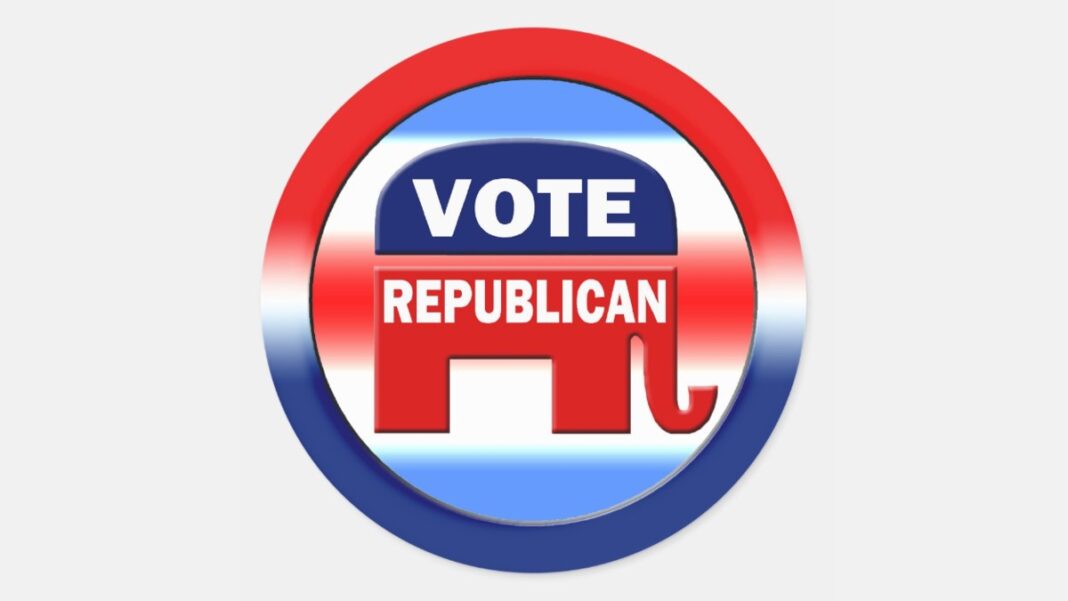There is no simple answer as to how, I, a black person, ended up a republican. And I think the question is problematic in the first place. The question assumes that all black people feel alike, talk alike, and vote alike, as if black people are some homogenous group.
My name is Jason Innocent, and I am a card-carrying republican, living proof that not all black people vote alike. It is indisputable that I’m in the minority in the African American community. A Pew Center study showed a whopping 93% of African American voters voted for Democrat Barack Obama for President. And that was not an anomaly: since the 1930s.
African Americans have voted Democratic in large majorities ranging from 60% to 95%. Those African Americans identified as Republicans were often perceived as “sellouts” who were not committed to racial justice and empowerment. For early black conservatives like Booker T. Washington, founder of the Tuskegee Institute and the National Negro Business League, the way to achieve those ends was through respectability, deference to authority, and strict adherence to an ethical, peaceful, and productive lifestyle. In the early 20th Century, Washington’s approach focused on pragmatism, middle-class morality, and an emphasis on economic advancement over political solutions. As a result, it came under fire from NAACP founder W.E.B. Dubois who repudiated Washington’s accommodationism and called for persistent agitation [as] a way to liberty.” Most African Americans followed Dubois’ lead, shifting to the political left through the following decades. With the advent of the civil rights movement, black conservatives were pushed further to the margins. However, for those who retained their affiliation with the Republican party, their political philosophy was generally defined by either a solid social conservatism or a strong opposition to government interventions. Supreme Court Justice Clarence Thomas, former Secretaries of State Condoleezza Rice, and Colin Powell shared with their white Republican counterparts during the Reagan administration. Social conservatism, mistrust of government intervention, and the welfare state led to their opposition to the programs that many others within the African American community credit with breaking down barriers. In addition, advancing racial justice programs like Affirmative Action, which justice Thomas opposes. It is hardly surprising that I would feel the need to explain myself; for all our deep historical roots, the black Republican is still a political unicorn.
Despite its appearing oddity and the solid idea of its current statutes, black conservative has a set of experiences dating back to the late eighteenth hundreds. And is sufficiently substantial to incorporate figures such as Frederick Douglass, Zora Neale Hurston, Malcolm X, and Bill Cosby. First is a profound craving for racial independence that, in being impacted, would eventually bring about personal autonomy. So, black conservatives genuinely take a resident’s protected right to seek joy. The second is the obliterate of race as a restricting component or indexical element of human accomplishment. Toward the end, black conservatives rushed to renounce theories of the pathologies of African American life. Creating a guarded stance once induced Ralph Ellison to address, “Can a group live and create for 300 years just by responding to white bigotry?”. Ellison on social decency, one that incorporates regard to society’s regulations. A solid hard working attitude, strict devotion, family values, sexual profound quality, and a sort of “good example” of governmental issues. If unfit to epitomize outstanding black behavior to other blacks, it would keep the race from being humiliated, according to the (white) Wall Street,” Tulsa’s Greenwood district. Too many historians gloss over the fact that a center of wealth and commerce was in the african american community in a state where Jim Crow regulations were implemented. On occasion, fiercely so. How is this possible so? Since the force of open economies is frequently more noteworthy than even the force of genuine fundamental mistreatment. By 1921, the Greenwood area covered 35 blocks and was home to 200 black businesses. Albeit a few researchers believe that there were about 600.
The value of those properties and businesses was equivalent to at least $22 million in current dollars, in light of protection claims recorded after white mobs obliterated the area. Those businesses emerged because of free people of color, regardless of the hindrances made by Jim Crow regulations and bigoted mentalities. Work hard, invest, and grow businesses and job opportunities. The opportunities created by their efforts in the marketplace allowed tremendous economic progress despite racist opposition.
Valid, bigotry made boundaries. However, prejudice could not defeat market influences and individual drive. If white-owned businesses would not serve black customers, black-owned companies quickly sprang up to fill the void, and great fortunes were made in the process. African Americans had the option to partake in the existence of flourishing beforehand. Impossible inside the living memory of a portion of those people or their relatives who had been enslaved.
How did African Americans revamp their local area? By turning their property into insurance to get momentary home loans. Those wagers on what was in store paid off. By 1940, the homeownership rate in Tulsa’s African American people group was 49%, a preferable rate over the 45% accomplished by whites around then. The Tulsa Race Massacre is a horrible demonstration of prejudice and psychological warfare. However, the flexibility of the Greenwood residents ought not to be eclipsed in the retailing, nor should the job that a free market and individual drive play in producing opportunity and prosperity.
Affirmative Action
Amongst black conservatives, they partially oppose affirmative action. The reason why is because government intervention in black mobility does more to question the ability of black individuals to succeed than it does to provide well-earned opportunities that would otherwise be inaccessible
Affirmative action is a way for minorities to be given a position in society based on their race instead of their character. Judging them by their skin color rather than who they are. As a person or by their capabilities and skill set. In many conservative perspectives, the government should not be involved in protecting and expanding the rights of groups; instead, the government should get out of the way and let individuals flourish. Just like many conservatives, i agree that it changes accountability standards. Equality implies allowing everybody a similar fair opportunity toward the start of an excursion rather than zeroing in on socioeconomic issues. We can focus on setting out better policies in each field in the US. We can create superior policing, begin coaching projects, and deal more help to the individuals who need it. Governmental policy regarding minorities in society is receptive, implying responsibility principles change. We should be proactive to make equality. Another reason is that it lessens the achievements that minority groups obtain. Suppose someone receives a position due to a program like Affirmative Action. Their accomplishments are viewed as a result of policy rather than individual expertise and ability. It implies that individuals in minority groups regularly should work harder to achieve the same level of respect that people in majority groups receive as they must counter the policy perspective.
Individualism is where individuals are personally responsible for pursuing success in their self-interest. Black conservatives favor identity and oppose government interventions such as affirmative action because they do not want it to raise the question of whether or not they deserve the successes they have achieved. Or if they participated in what some refer to as “reverse racism.” However, individualism is essential in becoming a more independent person who Team, The Investopedia. “Free Market Definition & Impact on the Economy.” Investopedia, Investopedia, 21 Sept. 2022, https://www.investopedia.com/terms/f/freemarket.asp.
Friedman, Milton, and Rose D. Friedman. Capitalism and Freedom (Fortieth Anniversary Edition). University of Chicago Press, 2009.








